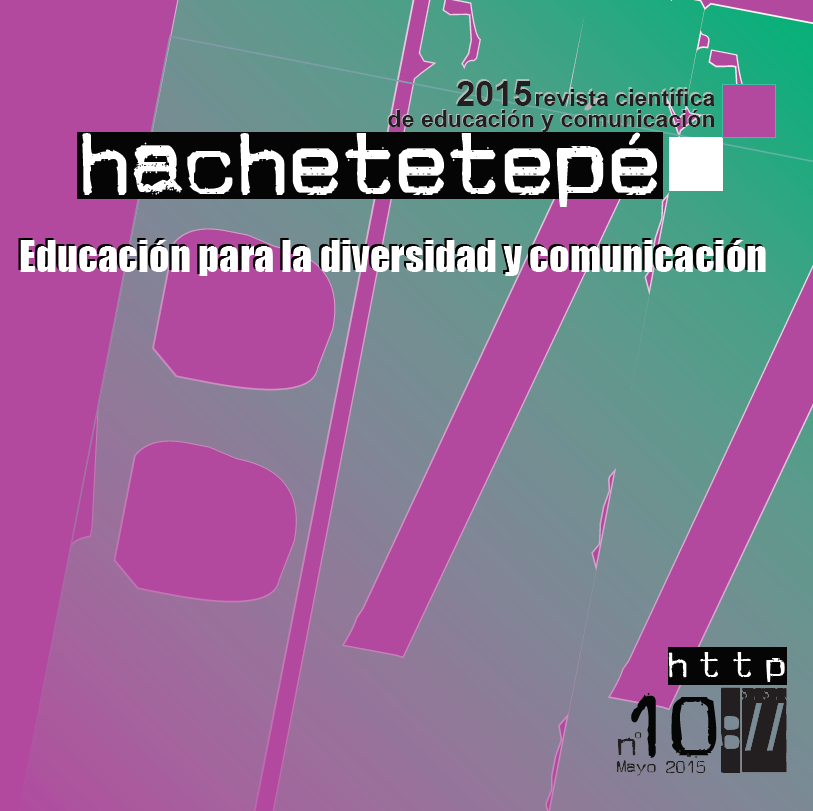Communication in Mutual Support Team (GAM ): an inclusive strategy to support
Abstract
Presentamos en este artículo una experiencia innovadora en el ámbito del Apoyo educativo: la creación, formación y desarrollo de Grupos de Apoyo Mutuo (GAM) en los colectivos educativos de profesores, familias y alumnado. Este proyecto se enmarca en una investigación I+D+i titulada: Escuelas que caminan hacia la inclusión educativa: trabajar con el apoyo educativo para promover el cambio, que tiene como meta la mejora de los procesos y estrategias de apoyo. Usando una metodología cualitativa caracterizada por ser descriptiva y participativa hemos podido conocer y analizar la dinámica de trabajo de las sesiones de apoyo que desarrollan los GAM. Señalamos finalmente algunas conclusiones vinculadas con los procesos de comunicación.
Keywords
Downloads
How to Cite
License

This work is licensed under a Creative Commons Attribution-NonCommercial-NoDerivatives 4.0 International License.
Those authors who have published with this journal, accept the following terms:
- They will retain their copyright and guarantee the journal the right to first publication of their work, which will simultaneously be subject to the Creative Commons Attribution License . They may be copied, used, disseminated, transmitted and publicly displayed, provided that the authorship, url, and magazine are cited, and are not used for commercial purposes. No derivative works are allowed.
- They may adopt other non-exclusive license agreements for the distribution of the published version of the work (e.g., deposit it in an institutional telematic archive or publish it in a monographic volume) provided that the initial publication in this journal is indicated.
- Disseminate your work through the Internet (e.g., in institutional telematic archives or on your website) once the manuscript is accepted, which may lead to interesting exchanges and increased citations of the published work. (See The effect of open access).
Hachetetepé. Scientific journal of education and communication does not charge a fee for the submission of manuscripts or for the publication of its articles.
References
Ainscow (2001). Desarrollo de escuelas inclusivas. Madrid: Narcea.
Creese, A., Daniels, H. y Norwich, B. (1997). Teacher support team in secondary schools. DfEE Report.
Echeita, G. y Ainscow, M. (2011). “La educación inclusiva como derecho. Marco de referencia y pautas de acción para el desarrollo de una revolución pendiente”. En Tejuelo, 12; 26-46.
Echeita, G.; Simón, S.; López, M. y Urbina, C. (2013). “Educación inclusiva. Sistemas de Referencia, coordenadas y vórtices de un proceso dilemático”. En: M.A.Verdugo y
R.L. Shalock (Coords.). Discapacidad e Inclusión. Salamanca, Amarú; 329-357.
Gallego, C. (2002). “El apoyo entre profesores como actividad educativa inclusiva.” En Revista de Educación, 327; 83-105.
Gallego Vega, C. (2013). “Una formación compartida entre familias y profesores para el desarrollo de Grupos de Apoyo Mutuo”. En Revista de Investigación en educación. 11(3); 109-119.
Marcelo, C. y López Yánez, J. (Coords.) (1997). Asesoramiento curricular y organizativo en educación. Barcelona: Ariel.
Parrillla, A. y Daniels, H. (Coords.) (1998). Creación y desarrollo de grupos de apoyo entre profesores. Bilbao: Mensajero.
Stainback, S. y Stainback, W. (1999). Aulas Inclusivas. Madrid: Narcea.






